In 2024, 6.4 billion dollars of Kentucky’s annual budget will be allocated to KDE (Kentucky Department of Education). Despite this, U.S. News ranks Kentucky #32 in education among all 50 states. As the Kentucky assembly rages on, legislators have dedicated much time to improving education.
According to the Education Data Initiative, Kentucky only spends $14,042 for a student’s academic career, which is in the bottom 40% of states. However, some lawmakers believe Kentucky is spending enough money as it is.
In an interview with the Hilltopper, Republican Senator Lindsey Tichenor said: “Almost half of our state budget currently goes to education.”
Tichenor sponsored many educational bills, which she believes will go a long way to improving education without ballooning spending.
Tichenor described KDE’s current structure as “a very top-heavy approach to education which has consistently pulled dollars away from our classroom instruction,” proposing that lawmakers should “move the top heavy spending into the classrooms, with teacher pay and benefits, classroom resources, and building safety to ensure students are learning in safe environments.”
Governor Beshear’s budget proposal, which was struck down in the Senate, would have given all teachers a uniform 11% raise.
Tichenor addressed the pay for Kentucky: “Although Kentucky’s teacher pay average is incredibly low in comparison to other states, a raise should be proportional and take into consideration current pay. Some districts currently pay their teachers significantly higher than other districts. We do not need to widen that gap any further.”
Evidence of this “gap” can be found in the FTIS district where, according to Niche, the average teacher salary is $63,870, around $22,000 more than the state average, according to ZipRecruiter.
Not all issues stem from the budget; Republican lawmakers have been adamant this session that another way to improve education is to increase parent involvement and oversight of their children’s education.
“I believe it is a fundamental right of parents to oversee the care and upbringing of their children,” said Tichenor.
One such bill is HB (House Bill) 2, filled by Representative Suzanne Miles, which would allow for tax dollars to fund students’ education outside Kentucky’s public schools. This would make it easier and more affordable for parents to send their children to private schools. Similar bills have been floated in previous years, but none have passed.
“As KY stands, as one of a few states left that do not offer school choice options for our parents,” said Tichenor, “a student may be stuck in a school system that is not serving them with no way to find an appropriate learning environment that suits them. All of our students should be able to access the most beneficial education available.”
House Democrats criticize the bill because private schools that would be funded are religious institutions. Many claim this would be unconstitutional as it violates the First Amendment guarantee of separation of church and state.
SB (Senate Bill) 6, a bill sponsored by Tichenor, has already passed the Senate. It is intended to give parents more power to hold administrators accountable for curriculum content. However, it has been criticized by Senate Democrats for possibly allowing a way for predominantly Republican communities to control the narrative being taught in schools.
SB 6 forbids school administration from requiring any public school employee or student to endorse any religious or political ideology. It provides that no public school student or employee can be disciplined or discriminated against due to their views on a decisive topic.
Some of the criteria that define a “decisive concept” provided in the bill are:
- “All Americans are not created equal and are not endowed by their Creator with certain unalienable rights”
- “The Commonwealth of Kentucky or the United States of America is fundamentally or irredeemably racist or sexist”
- “An individual should feel discomfort, guilt, anguish, or another form of psychological distress solely because of the individual’s race or sex”
If a parent or student feels their school has treated them in a way that violates this law, they can take legal action for damages no less than $1,000 and no more than $100,000 per violation.
Republican senators have backed the bill, but Senate Democrats strongly oppose it. In an interview with Louisville Public Media, Senate Minority Leader Gerald Neal worries about its effect on teachers:
“Somebody is going to step outside the boundary, and we can pick out an exception. And then, we can extrapolate to make our point as if that’s the reality. I don’t buy that.”
Another weak point in Kentucky’s educational system is teaching elementary students basic reading skills. According to Mandy McLaren, an investigative journalist with the Courier Journal, “Nearly one in four Kentuckians cannot read and comprehend basic literature, rendering them basically illiterate.”
Since Kentucky’s economy was primarily made up of mining and agriculture in the past, a lower literacy rate wasn’t something that lawmakers were concerned with. However, as mining and agriculture jobs become few and far between, a low literacy rate puts Kentucky and its citizens at a disadvantage.
A second-grade teacher at Moyer Elementary, Katie Hood, shared her thoughts: “Literacy is the most essential subject I teach. In kindergarten, first grade, and second grade, students are learning to read. Beginning in third grade, students are reading to learn. If a student is struggling to read at the end of second grade, it makes every other subject more difficult for them.”
According to the U.S. Office of Justice Programs, the illiteracy rate among adult prison inmates is around 75%. Literacy is an essential requirement for most jobs. To make things worse, being unable to comprehend simple sentences makes applying for government programs such as unemployment almost impossible.
Megan Bibbins, a first-grade teacher at Johnson Elementary, said: “I personally do not see a huge literacy issue among our students.” However, she continued to say, “I do know that literacy is a concern in our state.”
“I am currently doing LETRS.” Bibbins continued. LETRS (Language Essentials for Teachers of Reading and Spelling) is a two-year professional training program offered to all Kentucky educators for free, fully funded by KDE.
In this session, however, lawmakers want to do more to improve literacy in the state. One of the bills Tichenor sponsored, SB167, would require cursive writing to be taught in all Kentucky elementary schools by the 2025-2026 school year.
Tichenor said: “Studies have shown that the simple task of cursive writing opens the brain to learning as it requires multi-sensorimotor skills and uses different areas of the brain to accomplish the task. It is often a method therapists use to help students who struggle with learning how to read.”
The bill is designed to ensure proficiency in cursive writing by the fifth grade. However, teachers don’t seem to see it as beneficial.
When asked how this bill would impact literacy, Bibbins stated: “I do not think requiring cursive to be taught will help our state academically or with literacy.”
Hood shared that sentiment: “I’d prefer to focus my instructional minutes teaching core content like reading, math, science, social studies, and writing. I think those subjects should take precedence over cursive handwriting.”
In an age dominated by the computer, it is hard for many students and educators to see the value of cursive writing. Students in 2024 are likely to only have seen cursive on historical documents and birthday cards from their grandmothers.
Kentucky has a long way to go if it wants to climb to the top regarding education, but lawmakers are trying their hardest, even if they can’t agree on how to do it.
This story was originally published on The Hilltopper on February 29, 2024.



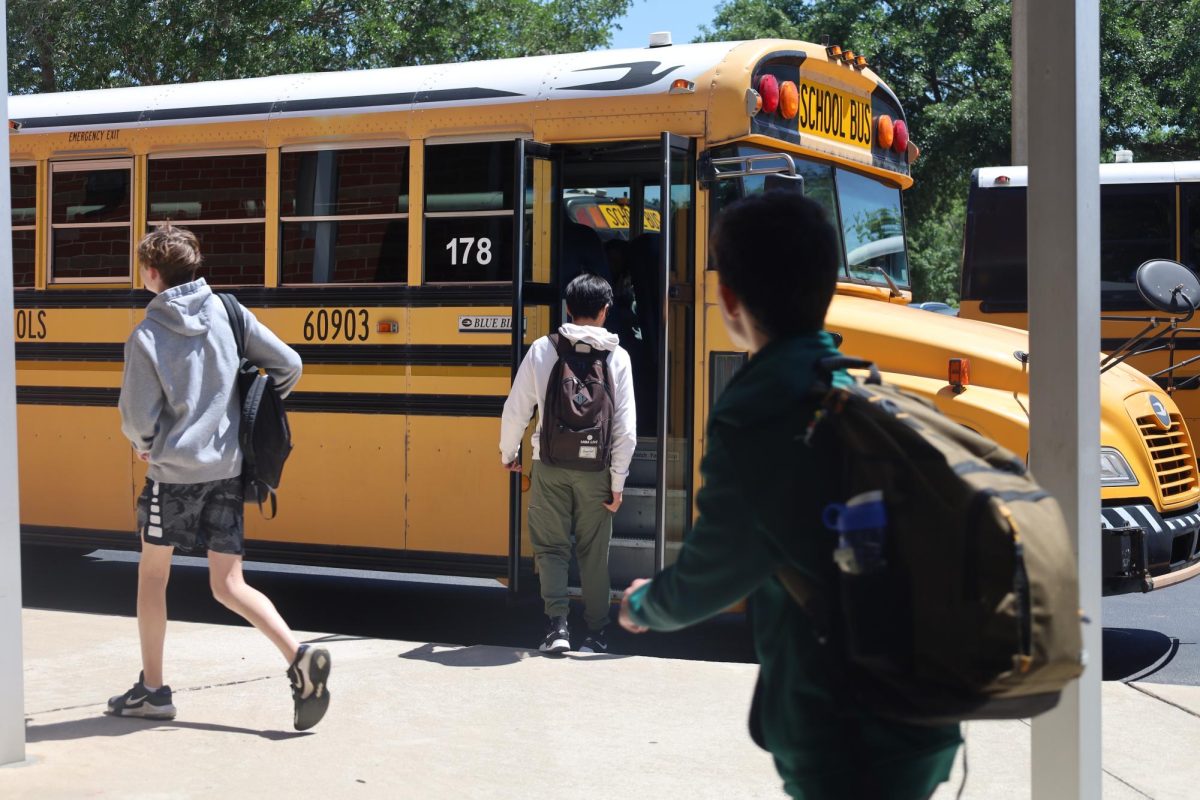



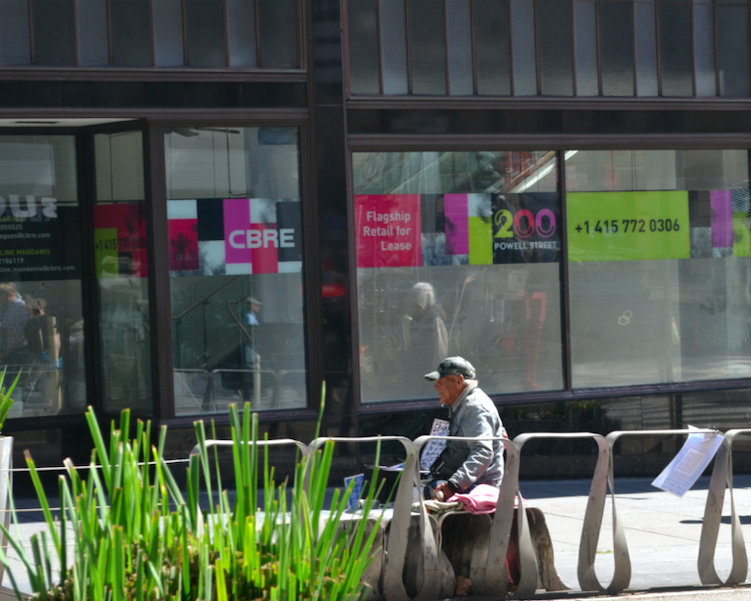


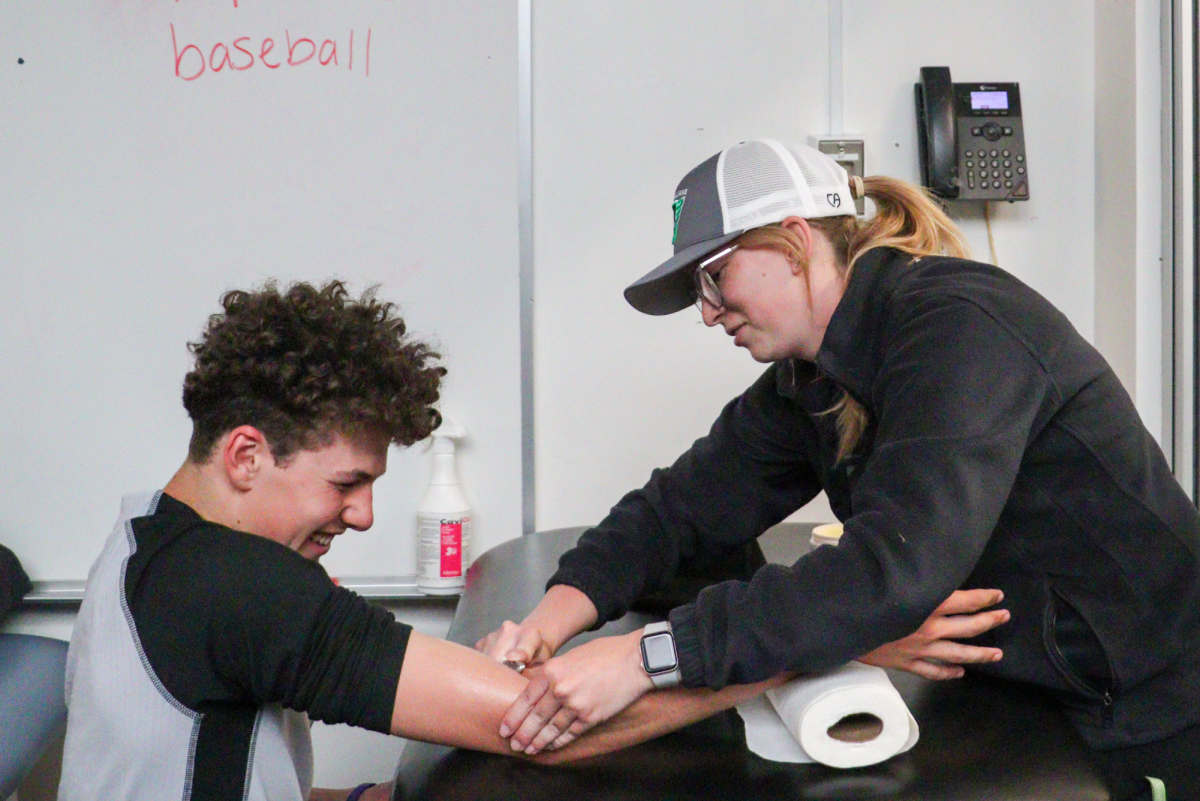






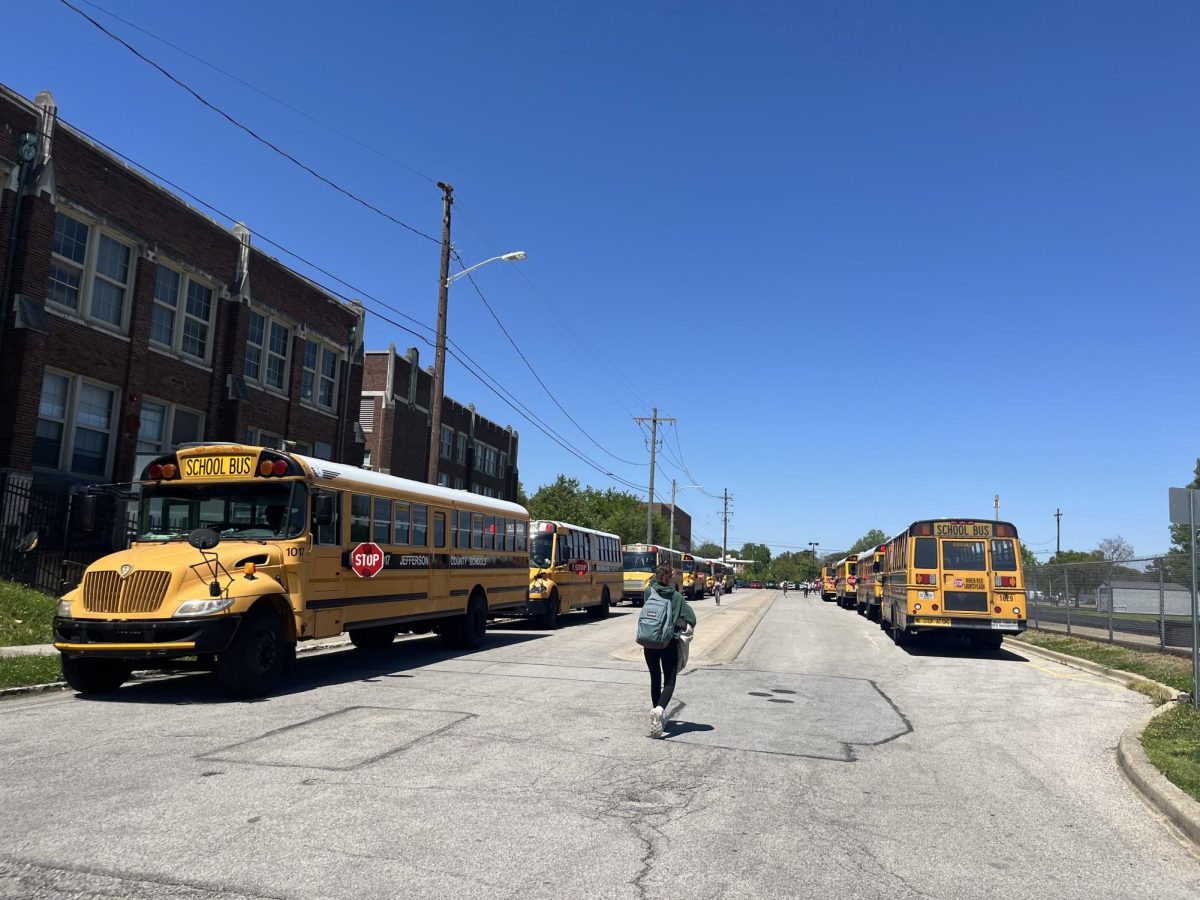





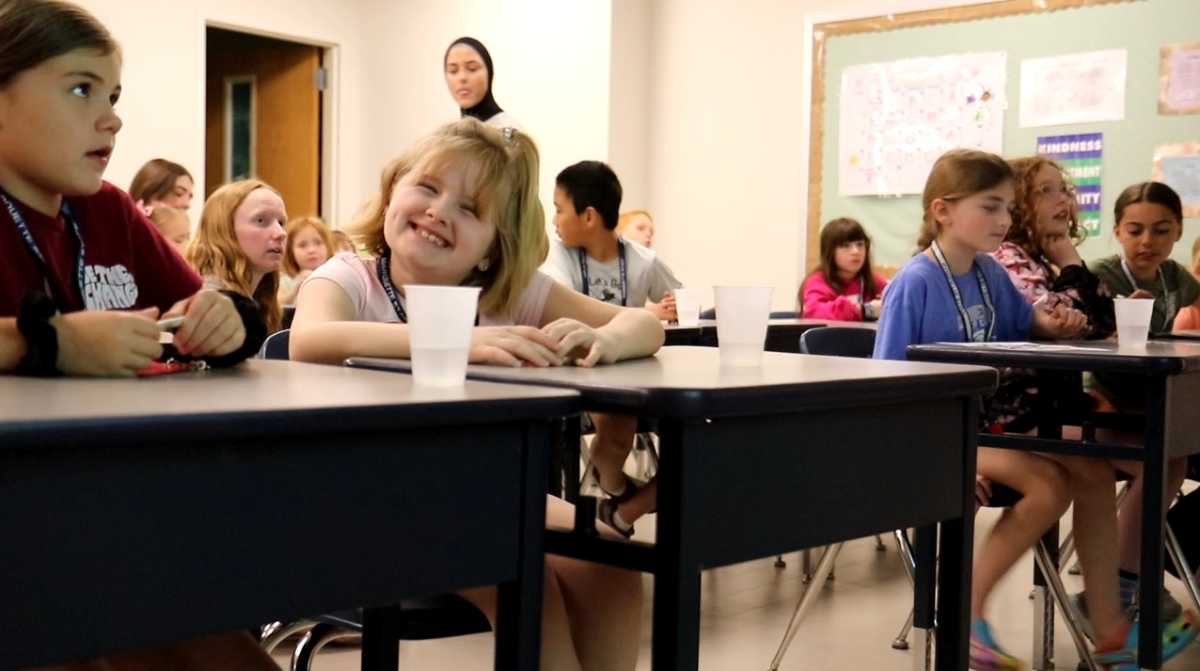
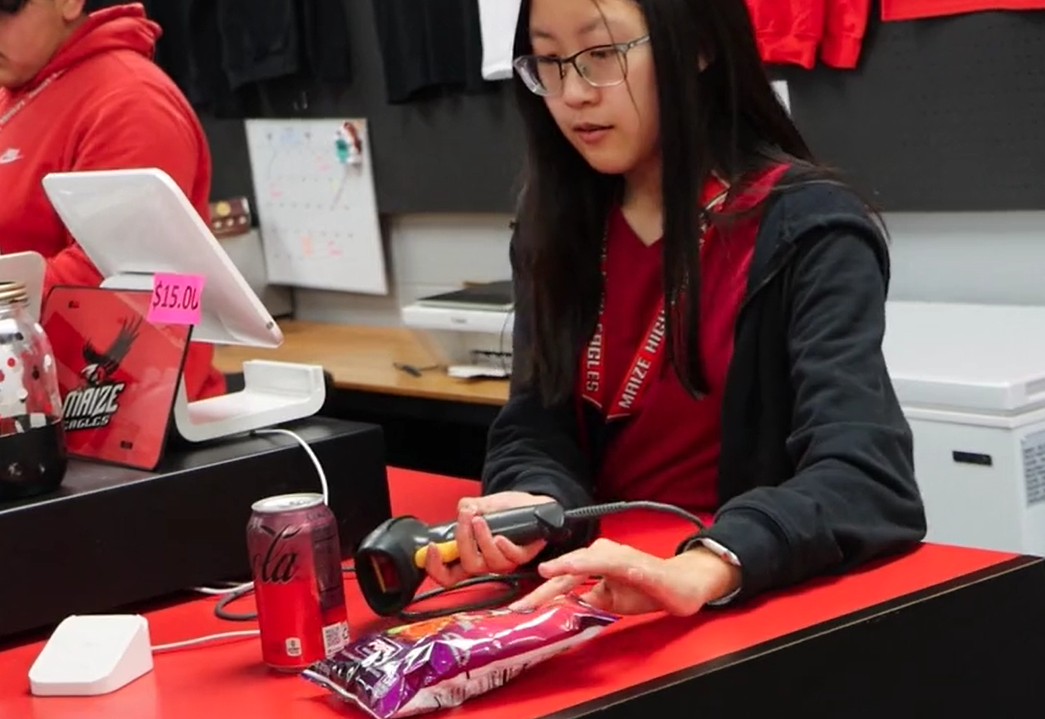







![IN THE SPOTLIGHT: Junior Zalie Mann performs “I Love to Cry at Weddings,” an ensemble piece from the fall musical Sweet Charity, to prospective students during the Fine Arts Showcase on Wednesday, Nov. 8. The showcase is a compilation of performances and demonstrations from each fine arts strand offered at McCallum. This show is put on so that prospective students can see if they are interested in joining an academy or major.
Sweet Charity originally ran the weekends of Sept. 28 and Oct. 8, but made a comeback for the Fine Arts Showcase.
“[Being at the front in the spotlight] is my favorite part of the whole dance, so I was super happy to be on stage performing and smiling at the audience,” Mann said.
Mann performed in both the musical theatre performance and dance excerpt “Ethereal,” a contemporary piece choreographed by the new dance director Terrance Carson, in the showcase. With also being a dance ambassador, Mann got to talk about what MAC dance is, her experience and answer any questions the aspiring arts majors and their parents may have.
Caption by Maya Tackett.](https://bestofsno.com/wp-content/uploads/2024/02/53321803427_47cd17fe70_o-1-1200x800.jpg)
![SPREADING THE JOY: Sophomore Chim Becker poses with sophomores Cozbi Sims and Lou Davidson while manning a table at the Hispanic Heritage treat day during lunch of Sept 28. Becker is a part of the students of color alliance, who put together the activity to raise money for their club.
“It [the stand] was really fun because McCallum has a lot of latino kids,” Becker said. “And I think it was nice that I could share the stuff that I usually just have at home with people who have never tried it before.”
Becker recognizes the importance of celebrating Hispanic heritage at Mac.
“I think its important to celebrate,” Becker said. “Because our culture is awesome and super cool, and everybody should be able to learn about other cultures of the world.”
Caption by JoJo Barnard.](https://bestofsno.com/wp-content/uploads/2024/01/53221601352_4127a81c41_o-1200x675.jpg)



